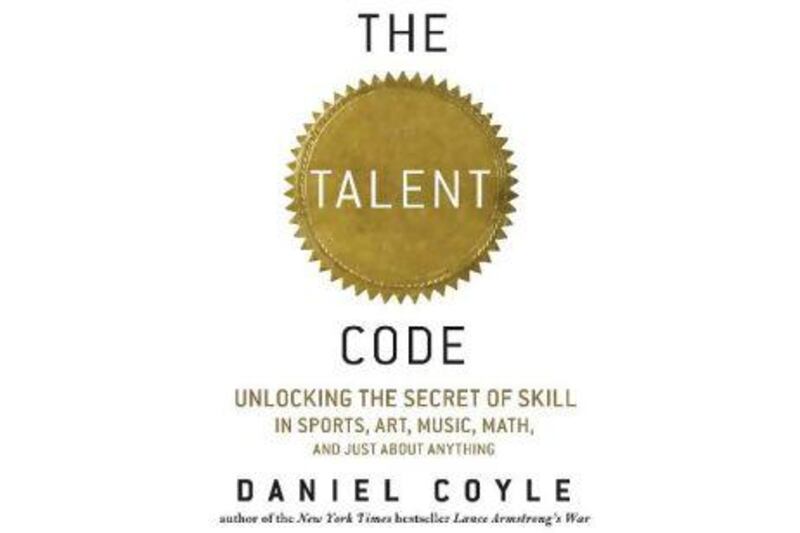Q&A: Gratuitous practice and myelin
On what is the book's core concept based? It is based on a scientific discovery involving a neural insulator in the brain called myelin, which some neurologists now consider to be the critical factor in acquiring skills.
How can the brain's myelin improve skills such as playing baseball or an instrument? When people fire neural circuits in the right way, such as while practising swinging a bat or playing certain notes, layers of myelin insulation are built up around the neural circuits used in that activity. Each new layer adds a bit more speed and skill.
Why is targeted practice so effective? Because the best way to build a good circuit is to fire it, attend to mistakes, then fire it again, over and over. Struggle is not an option for building skills – it is a biological requirement.
Review: The Talent Code by Daniel Coyle
From aspiring football stars to parents bent on grooming the next Serena or Venus Williams, many have long sought the secret to fostering talent.
From the beginning, Daniel Coyle's book The Talent Code assumes that greatness is not born, it is grown.
Mr Coyle visits a number of the world's talent hotbeds, which have produced famous singers, writers, athletes and others, then makes the case that some of the most talented individuals on the planet - whether famous or relatively unknown - have tapped into a neurological mechanism and mastered certain patterns of targeted practice to perfect their skills.
Through his easy-to-understand summaries of academic research, Mr Coyle convincingly argues that scientists have discovered the "holy grail" behind talent: myelin.
"In short," Mr Coyle writes about these scientists, "they've cracked the talent code."
According to Mr Coyle's take, all human skills, whether sports or music or some other talent, are created by tiny electrical impulses that travel through circuits in the brain. If you can recall your biology lessons, you may remember that myelin is a sheath around nerve fibres that improves the strength and speed of signals.
And each time people fire their circuits the right way, whether through practice swinging a bat or playing an instrument, more myelin develops around nerves and adds a bit more skill and speed.
The portion of the book dealing with myelin is the most interesting. Later sections, though, on two other key ingredients for nurturing talent - having the right cues and inspiration to "ignite" it, as well as the right kind of coaching - tend to drag, with more examples than are necessary.
Still, Mr Coyle's book provides new material for those interested in talent-creation literature.
Top 5: best-selling nonfiction books
1 Steve Jobs by Walter Isaacson – US$3
2 Killing Lincoln by Bill O'Reilly and Martin Dugard – $28
3 Heaven is for Real by Todd Burpo with Lynn Vincent – $21.99
4 Unbroken by Laura Hillenbrand – $27
5 Through My Eyes by Tim Tebow with Nathan Whitaker – $26.99
Source: New York Times
The Quote: Accelerated learning … can't quite be bottled [but] can be accessed by those who know how. - Daniel Coyle, the author of The Talent Code





